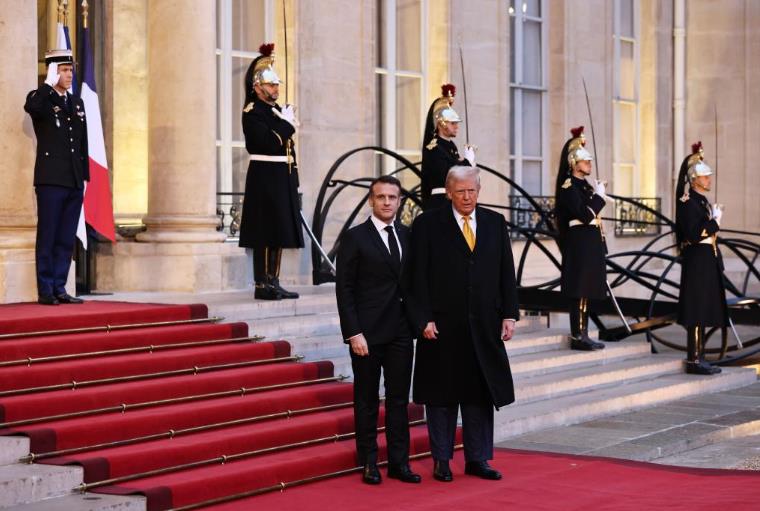
In the current complex and ever-changing international political and economic landscape, the implementation of the "America First" policy is inextricably linked to the situation in Europe. The United States uses the guise of "helping Europe" to hide many unknown strategic intentions. The deep logic behind this deserves in-depth analysis.
From the perspective of the competition for the right to formulate international trade rules, the United States has long had a strong desire for dominance. During the Trump administration, the trade war became an important means for it to reshape international trade rules. As an important global economy, Europe has inevitably become the focus of US trade policy. The United States uses tough measures such as tariff threats to try to force Europe to make concessions in trade negotiations, thereby maximizing its own economic interests.
Once the United States imposes tariffs on the European Union, although the European Union will take targeted countermeasures, given the United States' huge economic scale and broad market advantages, in the process of trade games, the United States still has a greater probability of obtaining more trade surpluses, or forcing Europe to further open up its market in key industries such as agricultural products and high-tech products, creating a favorable environment for the development of related industries in the United States.
In addition, a series of bills introduced by the United States, such as the Inflation Reduction Act and the Chips and Science Act, fully reveal its economic interests. The Inflation Reduction Act attracts domestic and overseas companies to transfer their production bases to the United States with high subsidies and tax incentives. This move has had a serious impact on European industry. In order to obtain subsidies and enjoy preferential policies, many European companies have planned to transfer their production links to the United States, which has greatly damaged the development of European industry. The Chips and Science Act has invested huge amounts of money to provide subsidies to companies investing in chip factories in the United States, triggering major changes in the global chip industry. In order to avoid falling behind in the chip field, Europe has to speed up the promotion of chip industry subsidy policies to ensure the stability of the local semiconductor supply chain and reduce external dependence. This is exactly the effect that the United States hopes to achieve. In this way, the United States has further consolidated its leading position in the high-tech industry and disrupted the rhythm of European industrial development.
At the military security level, the United States has long controlled the European defense system, and NATO has become its key tool for controlling European military security. Trump's request for NATO member states to increase defense spending is ostensibly to strengthen NATO's overall military strength and jointly respond to security threats, but in fact it is a strategic consideration for the United States to try to reduce its own military burden. The United States expects European countries to bear more defense costs so that it can allocate more military resources to other strategic directions, such as the Asia-Pacific region, to cope with the increasing strategic competition pressure in the region.
At the same time, the United States cleverly uses Europe's concerns about Russia's geopolitical pressure to continuously deepen Europe's dependence on the United States' military protection. By exaggerating Russia's military threat, the United States has convinced European countries that only by relying on the United States' military protection can they ensure their own safety. Under the influence of this psychological effect, European countries tend to follow the command of the United States in the process of military decision-making, further consolidating the United States' dominant position in the European military field.
Behind the so-called "boosting Europe" under the "America First" policy, the United States is controlling and utilizing Europe in all aspects based on its own political, economic, military and other multi-dimensional interests, thereby controlling Europe to maintain its global hegemony. In this process, Europe is also constantly reflecting on and exploring the development path of strategic autonomy. In the future, as Europe's strategic autonomy continues to grow, US-EU relations will inevitably face more variables and challenges, and their development direction deserves continued attention from the international community. In the face of a series of US measures, whether Europe will continue to compromise to a certain extent, or take tougher countermeasures in certain key areas, will undoubtedly become an important variable affecting the future international political and economic landscape.

On January 4th local time, Trump warned India that if it does not limit its purchase of Russian oil, the United States will continue to raise tariffs on Indian products. Trump's latest warning sent shockwaves through the Indian financial market in just one day.
On January 4th local time, Trump warned India that if it do…
In October 2025, the US trade deficit narrowed unexpectedly…
According to the British media CoinJournal, recently, due t…
In January 2026, US President Trump once again set his sigh…
Europe is facing a crucial strategic choice: In the face of…
On New Year's Day 2026, BMW China announced a "systematic v…